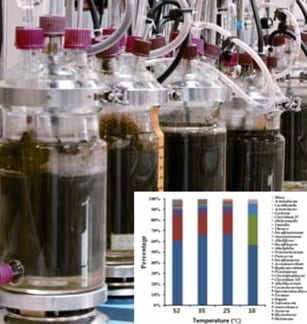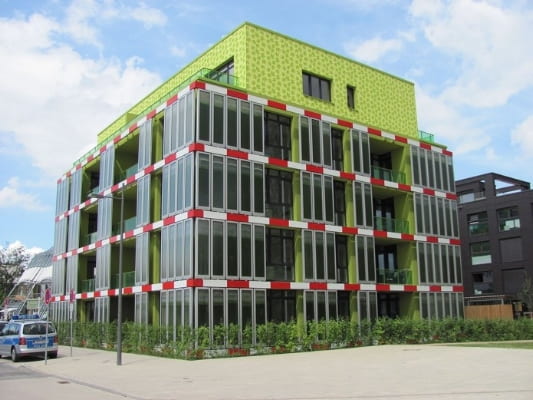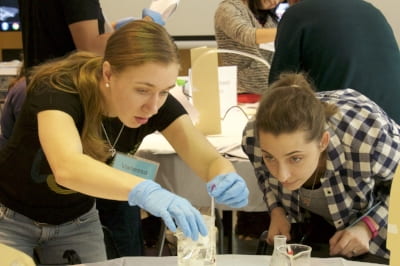
Due to its breadth of scholarship, reputation, location, and established relationships with local businesses and government agencies, UCLA is well-poised to play a leading role in a massive shift in our thinking of FEWS management in urban systems. Several UCLA faculty members beyond the core participants will be involved including: J. Jay (water contamination), G. Sant (construction materials), S. Tolbert, A. Spokoyny, R. Kaner (inorganic material synthesis), J.R. DeShazo (urban planning, environmental policy), M. Delmas (business and behavioral science), B. Dunn, X. Duan, Y. Hu (material synthesis, energy storage), W. Slusser (nutrition, health science), and R. Shipe (ecology, marine phytoplankton). In each project, NRT trainees and faculty advisors will carry out policy, economic, and life-cycle analyses to inform market adoption of the new sensors, materials, and systems developed.
Reduction and up-cycling of food waste

Problem statement:
Between 25 and 50% of food produced in the U.S. is wasted every year. The volume of food waste per capita in the U.S. has increased by 50% since 1974. Most of this waste is produced in populated areas and constitutes a real challenge for urban centers. In fact, discarded food represents the single largest component of the municipal solid waste stream reaching landfills and incinerators. Growing, processing, packaging, warehousing, transporting and preparing food is water intensive and wasted food means wasted water and energy.
Ongoing projects:
- Decaying food sensors (Dunn, Delmas, Tolbert)
- Responsive polymeric gels for hydration of soil and stabilization of food additives (Maynard, Diaconescu, Spokoyny, Duan, Kaner, Rowat)
- Behavioral science of FEWS waste (Delmas, DeShazo, Dunn, Tolbert)
- Food waste upscaling using microbiomes (Mahendra, Jay)
Innovation in FEWS Sustainability in Urban Systems

Problem statement:
World population is rapidly shifting toward greater urbanization, posing major sustainability challenges. For example, food production has been relegated almost exclusively to rural areas, resulting in increased energy consumption and CO2 emission to cover long travel distances. In addition, the high density of buildings in urban centers results in a dramatic urban heat island effect leading to substantial rise in ambient temperatures. This affects urban flora and fauna and results in additional energy consumption by building air conditioning systems. With world population reaching 9 billion, arable land availability per capita decreasing, and the threat of climate change, we are in the midst of a sea change in our views of the interconnectedness of water, energy, and food in cities.
Ongoing projects:
- New membranes for water purification (Maynard, Spokoyny, Kaner, Duan, Diaconescu, Dunn, Pilon, Alexandrova, Mahendra)
- FEWS for zero net energy buildings (Pilon, Jay, Sant, DeShazo)
- Solar desalination (Pilon, Jay, Sant, DeShazo)
- Urban agriculture and urban forestry (Delmas, DeShazo, Jarrahi, Jay, Mahendra, Sack, Pincetl)
- Urban resilience
- Urban heat island reduction
Integrated Solutions for FEWS Management at UCLA and in LOS ANGELES

Problem statement:
Promoting thinking and research across disciplines is critical to addressing today’s pressing sustainability challenges. UCLA established a Sustainable Grand Challenge Program focusing on UCLA and the greater Los Angeles area aiming to focus campus participation and innovation toward solving major societal problems. For UCLA and the city of LA, achieving sustainability will require new and interdisciplinary quantitative characterization of the flows of food, energy and water for which information is currently lacking.
Ongoing projects:
- Sustainable LA working group (Pincetl)
- A virtual lab space
- A Citizen science approach (Carruth, Blaik)
